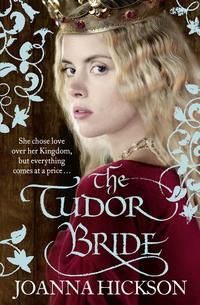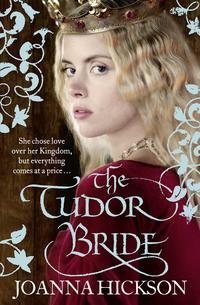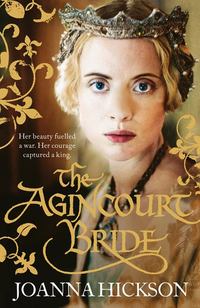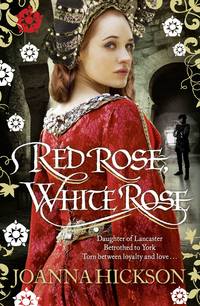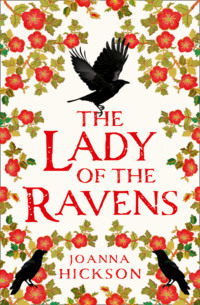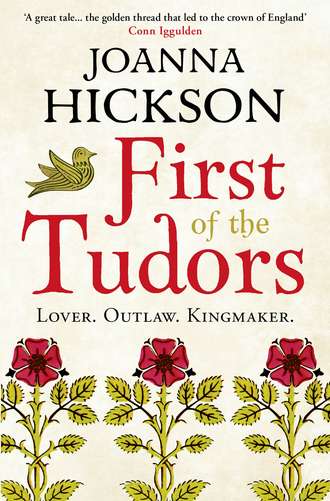
Полная версия
First of the Tudors
Walking our horses to the field one day Edmund had been scornful of my friendship with Jane, pointing out to me that a relationship with a Welsh farm-girl, especially one whose grandfather had been outlawed for rebelling against the crown, would not be one to mention at court. ‘Enjoy her company while we are here, Jas, bed her if you will, not that beds seem to abound in this part of the world, but for pity’s sake keep silent on the subject of Jane when we return to Westminster.’
I worried about Edmund’s attitude towards females. He did not seem to have absorbed any of the rules of chivalry drummed into us during the lessons on Arthurian legend, which the king had insisted should be part of our preparation for knighthood and which laid particular stress on respect for women. Edmund was always careful to impress our tutors with his grasp of Latin verse and philosophical texts but his moral code was that of the alehouse.
I angrily rejected his implication that I had lecherous designs on Jane. ‘The only bedding I have done here is strawing down the horses, brother – and for pity’s sake will you please stop calling me Jas!’
‘Temper, temper!’ he cried. ‘What does plain Jane call you then? Rust-head?’
‘No, but I will tell you what she calls you. Pretty boy! You frightened the sheep in your bright red doublet and yellow hose – you should have left them in London.’
‘And you should leave those mud-coloured rags of yours in Wales,’ he retaliated. ‘Along with your Welsh words and your bumpkin shepherdess – Jas!’ He had to dodge under his horse’s neck to avoid my bunched fist.
When we did return to court, however, it was not our clothes or my language which sparked a bout of teasing from our fellow squires but the tanned faces we had acquired after three months in field and saddle, weeks which we had both greatly enjoyed, no matter how much Edmund protested that he had stagnated in the ‘rural backwaters’ as he called West Wales.
But there was no prospect of a return to Wales. Memories of Jane were all I was ever likely to have, for now that Edmund and I had both reached our majority our brother the king often summoned us into his company, significantly more than the other household squires. I suspected that this was due to prompting by Queen Marguerite, who seemed to relish the notion that we were first cousins; her father’s sister, Marie of Anjou, was also our aunt by marriage, being queen to our late mother’s brother, King Charles VII of France.
‘But we cannot make anything of this in the court,’ she warned privately, in what I considered her rather charmingly broken English, ‘because King Henry is still le Roi de France, however successful are the armies of our Uncle Charles in Normandy and Maine.’
It was a moot point. According to the peace treaty that had married our mother to Henry’s father, he was officially king of France as well as England. But his commanders were gradually and ingloriously losing the vast swathes of French territory conquered by the fifth Henry and the peace of the realm was seriously threatened by hordes of displaced soldiers who, having settled in Normandy and Maine with their families, were now forced to flee the invading armies of King Charles and return to England, where many of them roamed the shires, homeless, penniless and desperate, stirring up trouble. This series of military setbacks had also drained the royal coffers and caused a dangerous split in the ranks of the English nobility. Earlier in the year the king’s distant cousin, Richard, Duke of York, who publicly lamented these failures, had been banished from court for bringing an army to London, demanding to be given command of the French wars and named as Henry’s heir.
It was Queen Marguerite who told us that she and the king were going on a Royal Progress and Henry desired that Edmund and I accompany them, not as his household squires but as his brothers. ‘Henry will dispense justice to all the poor people who have been robbed and attacked by these renegades from France,’ she explained.
This was undoubtedly an honour, intended to give us an intimate knowledge of our brother’s duties and beliefs. We were to lodge near the royal apartments and share the private solar.
I learned a great deal during that Progress about the way the king’s justice was dispensed, and discovered the enormous discrepancy between those nobles who were actively involved and compassionate overlords and those who dealt with their tenants at third and fourth hand, often using unscrupulous methods of extracting their rents and revenues.
I also found out a great deal about the king and queen themselves. They treated each other with unfailing courtesy but little apparent affection; the private time we spent with them significantly lacked laughter or casual exchange of the kind I expected between two people who had been joined in matrimony for more than six years. In fact, I felt there was a constant, underlying tension, which puzzled me. Of course love was no prerequisite in a dynastic marriage such as theirs but Henry scarcely seemed to notice that Queen Marguerite was undeniably lovely, with an exotic beauty and a graceful figure that elicited furtive but appreciative glances from most of the young men about court. He refrained from any comment on her dress or appearance unless he thought it too elaborate or excessively extravagant. He himself dressed more like a cleric than monarch despite Marguerite urging him to adopt the bright fabrics and brilliant jewels she considered appropriate to the royal state.
She sought our support in this endeavour. ‘The people expect splendour of their king, do you not think? Edmund – you must agree for you are always á la mode. Perhaps you might advise his grace on what the nobility are wearing? I notice that the hems of the young courtiers’ gowns are getting shorter, their hose is more colourful and their jewellery more lavish but I cannot persuade Henry to adopt this style. He dresses as if every day were Vendredi Saint.’
Nevertheless Henry continued to avoid splendour, even when attending the opulent feasts provided by our hosts during the Progress, all of them anxious to please their sovereign, hopeful of obtaining some reward. These occasions provided opportunities for dancing and masking, when many young male courtiers chose to display their physiques, stretching their hose tightly over their thighs and exposing more leg than would be wise in cold weather. King Henry certainly enjoyed a mask, especially if it was based on a biblical theme but his habit was to retire to his private chamber before the evening entertainment became too boisterous.
Usually and much to Edmund’s vexation, he asked the two of us to retire with him. Henry then chose to drink small ale and talk over the events of the day, such as the judicial cases he had heard at the local assizes or a visit he had made to a religious shrine. As strains of dance music drifted through open windows, Edmund’s feet would start tapping out the rhythm, while he strove to preserve an expression of rapt interest in the king’s discourse. I confess that I was often guilty of this myself and reminded of the countless times our greybeard tutors had droned on about the Rule of St Benedict or the writings of St Gregory while beams of sunshine beckoned us outdoors to the joust or the hunting field.
Henry’s cousin and chief counsellor Edmund Beaufort, Duke of Somerset, joined the Progress for its final days during a stay at Reading Abbey. We shared our brother’s evening ale as usual and on this occasion so did the duke, a man well known to us. We had good cause to pay him full attention. As a young man, with less status and influence than he commanded now, Edmund Beaufort had proposed marriage to our mother, the dowager Queen Catherine, but the royal council had vetoed the match. Subsequently he had discovered her clandestine marriage to Owen Tudor but agreed to keep it secret and stand godfather to their first son who was named Edmund in his honour. Ever since then he had proved a staunch friend to us and so his presence that evening was highly significant.
The abbot had surrendered his Great Chamber to royal occupation; a huge vaulted and panelled room in which even King Henry’s substantial travelling bedstead looked like a campaign cot. All the doors and windows were closed and the heat of the summer day lingered stiflingly beyond the dusk so that I longed to loosen my collar and open the front of my doublet, under which my shirt clung to me, damp with sweat. The duke and the king sat in carved oak armchairs in front of the empty hearth, two cushioned stools placed before them.
After we had been invited to sit in the king’s presence it was the duke who spoke first. ‘His grace is grateful for the company you have both afforded him during this Royal Progress. He is much comforted by the unflinching loyalty of his two brothers, to him and to his queen, and he has decided that the time has come to show you his favour.’
At this point King Henry lifted his hand to indicate that he wished to speak and Somerset fell silent. Edmund and I exchanged glances and I spied a gleam in my brother’s eye, which resonated with the increased beat of my heart.
‘My lord of Somerset is right,’ the king began. ‘Lately we have felt the grave responsibilities of monarchy weighing heavily on our shoulders and although we can share some of this with our queen and our loyal officials and councillors, it has occurred to us that you, our beloved brothers, who share our royal blood and show us so clearly the love and loyalty which naturally bind us, should be brought within our close circle and raised to a rank which reflects your true status. Therefore it is our desire and intent to create you, Edmund, Earl of Richmond and you, Jasper, Earl of Pembroke. It is our hope that the necessary arrangements can be made for these honours to be conferred by Christmas so you may be ceremonially installed on the Feast of the Epiphany, when gifts are presented in celebration of those brought by the Magi to the newborn Christ. This will be my gift to you.’
At the end of his speech Henry held out his hands, psalter-width apart and smiled expectantly at us, whereupon both Edmund and I sank to our knees before him. Exerting his seniority as usual, Edmund placed his hands between those of the king and spoke the time-honoured oath of fealty, which every nobleman learned by heart.
‘Sire, I am your liegeman in life and limb and truth and earthly honours, cleaving to you above all men, so help me God and the Holy Dame.’
King Henry leaned forward to accept Edmund’s kiss on his cheek and then turned to me, his hands once more outstretched. I felt them encompass mine, his palms surprisingly dry on my sweat-slicked fingers. The same oath left my lips in a voice that shook with emotion. As I moved to give my brother the kiss of fealty I caught the unmistakable odour of incense clinging to his clothes, pungent evidence of the hours he spent daily, praying in church or shrine.
He rose, obliging us to follow suit and his broad smile was unfamiliar but warm. ‘I feel God’s benison descending to salute our brotherly union,’ he said. ‘I will let his grace of Somerset explain the details of your advancement but I hope you will not neglect to give thanks to our Lord and His Holy Mother for their bountiful blessing; and now I will retire to the abbot’s chapel to seek God’s guidance on tomorrow’s assizes. I am told there may be hanging matters involved. I wish you both good night.’
In the absence of a chamberlain, I strode to the door to open it for him, making the guards on the other side jump in surprise and bring their halberds hastily to vertical in salute. As Henry walked out he already looked lost in his own thoughts, his head bowed over clasped hands, like a monk making his way to the midnight Office. As I closed the door Edmund came up behind me and flung his arm around my shoulders.
‘How is it with you, my lord of Pembroke?’ he cried with undisguised glee. ‘Now we are truly brothers to the king!’
I returned his embrace with equal enthusiasm but a stern Somerset stepped forward, urging caution. ‘Not yet, not yet, young sirs!’ He waved an admonitory finger, his grey beard jutting forcefully. ‘His grace bid me warn you to keep this news to yourselves until the formal announcement is made at court. There are legal documents to prepare and land grants to be drawn up. These will take time but meanwhile you can give thought to your crests and coats of arms. The heralds will be made aware of your impending ennoblement and you can also begin to order your robes and livery from the royal tailor. All are used to keeping such secrets. The king plans to make the announcement at Christmas and belt on your swords at the Tower of London on the Feast of Epiphany, as he told you. Meanwhile I offer you both my hearty good wishes and look forward to welcoming you to the ranks of England’s mighty earls.’
* * *
On our return to Westminster Palace we found we had been allocated quarters close to the king’s private apartments, a move that fuelled a spate of court gossip, whether Henry and Somerset liked it or not. Our new chambers were light and airy, boasting elaborate furnishings and casement windows overlooking the Thames, diamond-glazed instead of merely shuttered. Each had a separate guardrobe with a latrine draining into a moat washed clean by each high tide, a welcome privilege, indicative of very high status. Between these chambers lay an anteroom where attendants and visitors might await admittance. The apartments were on the same floor as those of the king, but the sweeping stone staircase was reserved for his use and we accessed our rooms by a narrower and steeper spiral stair. Queen Marguerite and her ladies were housed in a separate wing of the palace, linked to the king’s apartments by a private gallery, where handpicked and trusted members of the royal guard kept discreet watch, despite little sign that it was a path well trodden.
Behind the closed doors of our new chambers Edmund and I were fitted for our coronets and mantles of state. We had been granted funds to extend our wardrobes and for once I was grateful for Edmund’s familiarity with fabrics and fashions, being woefully ignorant on such matters myself. However, King Henry planned a joust in our honour following our installation, and then the boot – or more accurately in this case the sabaton – would be on the other foot, for it was I and not Edmund who knew the best agents from whom to commission new armour, having made a study of the latest developments in military design. Until this time, as yeoman squires of the king’s household, we had been provided with standard ready-made body-defences and so for me it was a proud day when I stood in a hot, noisy workshop off Cheapside to be measured for my first custom-fitted attire.
Edmund was less enthusiastic. ‘What can it matter whether I have the latest hinges on my helmet’s visor,’ he demanded, ‘as long as I can readily open and close it? My chief concern is the shape of the sabatons. The style of a noble knight is judged by how much of his foot extends through the stirrups when he leans back to aim the lance. I definitely want sabatons with the longest possible points.’
The kneeling armourer paused in the act of measuring Edmund’s calves for greaves. ‘As an earl you are permitted to wear them twice the length of your foot but I must warn you, my lord, that if the points are too long, the foot will not readily be released in the event of a fall from the saddle,’ he cautioned. ‘It is a dangerous fashion.’
‘So fashion can prove deadly if you are dragged by a galloping charger, Edmund,’ I remarked scathingly, adding more seriously, ‘You should heed the man’s advice.’
My brother eyed me scornfully. ‘A knight who expects to fall can expect to lose. Nothing demonstrates cowardice more than stunted sabatons.’
In my opinion, foolish risk-taking in jousting and fighting demonstrated nothing but idiocy, but I recalled it was I, not Edmund, who had been lucky to receive only a chipped tooth as a result of a jousting accident and so in the interests of maintaining good brotherly relations I shrugged and, leaving the armourer to pursue the argument, wandered off to examine my surroundings.
Like most noble English knights we would have the individual pieces of our armour made to our measurements in Germany where they had perfected the steel-rolling process. They would then be fitted and altered as necessary in London workshops like this one. I watched perspiring apprentices scurrying between three forges where the master armourers worked. There was barely a moment of silence as they hammered expertly at the many separate items that formed a knight’s ‘attire’: breastplates and backplates, greaves and gauntlets, cuirasses and vambraces and all manner of joints and swivels, buckles and bracers. The mingling of heat, sweat and noise formed a miasma, which I found exhilarating, stirring images of jousts and tournaments and the heady prospect of action on the battlefield. There were shutters at either end of the premises, which even in this late autumn season stood wide open, allowing what breeze was to be found in the narrow streets of the city to carry away the poisonous fumes from the red-hot forges. I leaned against one of the supporting pillars and admired the skill of the finishers working at benches along the walls as they engraved and stamped distinguishing designs into the metal before polishing it. As a squire I was thoroughly familiar with the order and attachment of one gleaming element to another when I fitted them to a knight’s body and felt a thrill at the thought that soon I would be able to appoint my own squires to perform this onerous task for me.
Christmas that year was held at the Palace of Placentia at Greenwich, whither the court moved en masse two days beforehand, travelling downriver on a convenient morning turn of the high tide. Still officially serving as the king’s Squires of the Body, Edmund and I accompanied King Henry and Queen Marguerite on the royal barge from Westminster, enjoying the thrill of the slide under one of the narrow arches of London Bridge as the water churned through to escape into the wider reaches of the Thames beyond.
King Henry had inherited the palace and park at Greenwich from his uncle, Humphrey, Duke of Gloucester five years previously and it was a particular favourite of his, due to the celebrated library his cultured uncle had amassed there. It was Queen Marguerite who had renamed it Placentia for its green and rural setting – though it lay only a few miles downstream. The contrast with Westminster’s tightly packed streets and buildings was magical; an oasis, and like the outgoing tidal waters of the Thames, the queen yearned to escape from the confines of urban life upriver. Besides, hunting was one of the few pastimes Henry and Marguerite had in common and there were great chases to be had in the vast enclosure of Greenwich Park. As the oarsmen made swift work of the long meander around the north bank mudflats, I sniffed the salty tang in the air and prayed that the crisp, calm weather would persist and give us some magnificent Christmas sport.
It was King Henry’s decree that on the Eve of Christ’s birth his court should be unsullied by too much eating, drinking and merrymaking, such as had been common during previous reigns and still persisted in many noble houses. So after a long celebration Mass during the morning, there was a decent meal of three courses accompanied by a limited quantity of wine and small ale, consumed while choristers sang beautiful but plangent psalms, and prayers and Gospel readings were heard. Afterwards a troupe of mummers performed a Nativity play dressed in gorgeous traditional costumes kept in the royal Wardrobe for use on this one night of the year. It took place in candlelight as darkness fell outside and was an unexpectedly moving experience. When the shepherds fell to their knees in awe at the choir of angels, enthralled by their soaring voices and twinkling jewelled wings I felt a surge of nostalgia, recalling nights spent under the stars with Jane Hywel and her brothers while embers from the camp fire rose into the dark sky and my father played his harp and sang stories of ancient Welsh legend.
It was at the conclusion of this play, as the applause died down and a hum of conversation started, that King Henry chose to have his big announcement made to the court. He did not do it himself but, appropriately enough, through the services of his Richmond Herald, who began by sounding his trumpet for silence.
‘My lords, ladies and gentlemen of the king’s court and household, hear your gracious sovereign’s will. In so far as his grace’s uterine brothers, Edmund and Jasper, have gained their majority, it is his royal highness’s desire to recognize their legitimate descent from his beloved and much lamented mother, the right royal Queen Catherine, consort to his glorious and right royal father King Henry the Fifth of England. Therefore the honour of knighthood shall be bestowed on them and in addition the king’s beloved brother Edmund shall be created Earl of Richmond, a royal honour and title held in abeyance since the death of his grace’s uncle John, Duke of Bedford, and the king’s beloved brother Jasper shall be created Earl of Pembroke, a royal honour and title held in abeyance since the death of his grace’s uncle Humphrey, Duke of Gloucester. As blood brothers of the king, they shall be granted precedence over all other nobles of the court save the royal dukes. This is the king’s solemn intent and shall be accomplished with full ceremonial at the Tower of London on the Feast of the Epiphany. Hear ye the will of your sovereign lord Henry the Sixth, King of England, France and Ireland!’
The trumpet sounded again and there followed a pause while people digested the content of the herald’s announcement, and then suddenly our fellow squires surrounded us, clapping us on the back and uttering cries of surprise and congratulation. This tumult was brought to a halt by two royal pages calling for precedence and pushing our friends aside to clear the way for Queen Marguerite, who appeared before us, beautiful in her glittering Christmas array, and favoured us with a smile that almost outshone her jewels.
‘May I add my felicitations to those of your companions? Our court will be much enhanced by the ennoblement of two such worthy gentlemen and his grace the king will greatly appreciate your good counsel and company. But, mes presque-seigneurs, I wish to be first to retain your services as my partners for the first two dances at tomorrow night’s Christmas Ball. I trust there are no ladies of the court to whom you have already pledged yourselves.’
Brilliant though her smile was, it offered no indication that she would give way to any prior pledge we might have made. Queen Marguerite did not bestow the honour of a dance lightly and certainly did not expect it to be refused. Edmund made a swift bow and left her in no doubt. ‘I would be honoured and enchanted to be my queen’s partner,’ he said gallantly. ‘In fact I would walk barefoot over broken glass to take your hand, Madame.’
The queen’s brows rose in surprise. ‘But then you would be in no fit state to dance, sir,’ she said. ‘And the first tune is always a lively one.’
I made my own bow of acquiescence. ‘Then I hope the second may be long and slow, your grace,’ I murmured.
She gave me a quizzical glance. ‘Do you indeed, Master Jasper? Then you had better have a word with the musicians. I look forward to tomorrow, Messires. Again, my congratulations.’
Her damasked cloth-of-gold train swept the floor as she turned away.
4
Jasper

The Palace of Placentia, Greenwich
IGNORING THE SUMPTUARY LAWS – again – Edmund chose to wear a purple doublet for the Christmas Ball although he called it violet.





